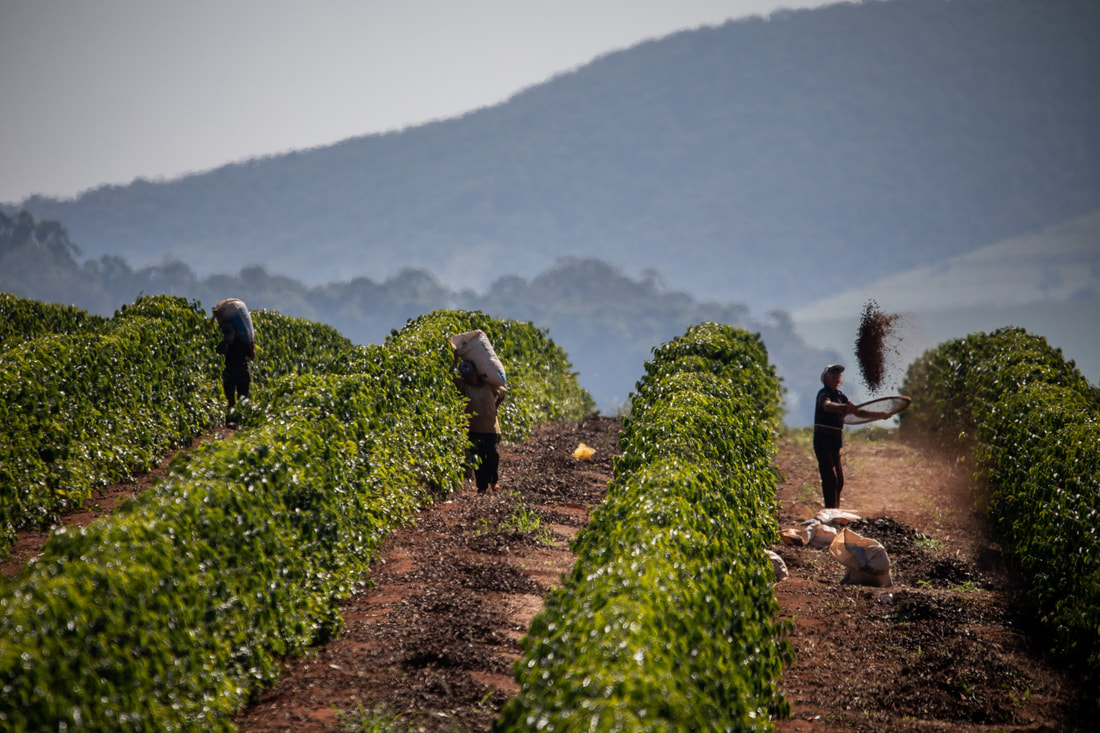|
By:B. Schwartzman Lucio Have you ever thought about the ground you step on every day? The physical roots that lie on our soils, which we step on everyday make up over 500 years of Brazil’s history. This is, of course, without taking into consideration the importance Brazilian soil has on the economy. Brazil's agriculture sector stands as a vital pillar of its economy, wielding immense significance not only domestically but also globally, sustaining over 22% of economically active people directly.
Brazil's agriculture sector plays an indispensable role in ensuring food security for its population of over 211 million people. The sector contributes to approximately 5.2% of the country's GDP, with agricultural exports accounting for around 25% of its total exports. This translates to a robust domestic supply of products such as grains (corn, rice, and wheat), meat (beef, poultry, and pork), and a rich array of fruits and vegetables that nourish Brazilian households. Brazil's contribution to global food security is highlighted by its position as a major exporter of agricultural goods. According to recent statistics, Brazil is the world's largest exporter of soybeans, coffee and sugar and ranks among the top exporters of meat. Innovation and technology are propelling Brazil's agriculture to new heights of productivity and sustainability. The adoption of precision farming, remote sensing, and advanced irrigation techniques has significantly increased crop yields while optimizing resource use. With that farming becomes more sustainable, which is a major preoccupation for the future of the planet. Notably, in the quaternary sector, Brazilian farming industry invests heavily in research and development within the agricultural sector, with a focus on improving yields, enhancing product quality, and reducing environmental impact. Following the sustainability theme, another pertinent issue is energy production; petroleum is finite, pollutant and expensive. Other energy resources also have their disadvantages, some greater than others. Throughout the past decades, biofuels have played an important role on diminishing the reliance on non-renewable, especially in Brazil where agriculture is the country’s powerhouse and expertise. As of 2021, biofuels account for 19% of Brazil’s energy matrix, with potential to expand on the years to come. Biofuels mostly come from sugar cane, which is abundant and easily replaceable. However, biofuels may represent a threat to food security, as a large fraction of production would have to be redirected to fuel production in order to supply significant energy units. Brazil's agriculture sector stands as a vital player in ensuring domestic food security, contributing to global food supplies, shaping the economy, and influencing international relations. The sector's remarkable contributions are underscored by its impressive statistics—whether in terms of GDP, employment, exports, or technological innovation. As the world's population continues to grow and face challenges such as climate change and shifting dietary preferences, Brazil's role in agriculture becomes increasingly vital. By embracing sustainable practices, continuing to invest in research and innovation, and fostering collaborations both at home and abroad, Brazil's agriculture sector can maintain its pivotal position, not only for the nation but for the global community.
0 Comments
Leave a Reply. |
Categories
All
Archives
June 2024
|

